Isayama claims that the story of Attack on Titan isn’t about ‘right’ and ‘wrong’. And any keen observer can attest to that. The story focuses on choices – pre-destined or free will – and the consequences that arise from it in the extremely flawed civilization humanity thrives in.
When talking about choices – whether of free-will or preordained, right or wrong – one character can be brought under our lens. It is none other than Eren Yeager.
His actions in the final arc seems to have put a death flag on him. Will Eren die in Attack on Titan? Or will he survive? Only Isayama and his editor could truly answer that however, that cannot stop us from exploring some interesting theories and observations.
Short Answer
Currently, Eren has not died in Attack on Titan. In view of certain observations and foreshadowing along with the direction of the story, we believe that Eren will die at the end of the series.
However, it is hard to put that out there with conviction when considering Isayama’s unpredictable style of storytelling and his tendency to subvert expectations.
1. Does Eren Die in Attack on Titan?
Eren Yeager’s journey from a driven hero to one of the most chilling antagonists a series has harboured is beautifully crafted. And no matter how much you love him, it is undeniable that what he’s doing is wrong.
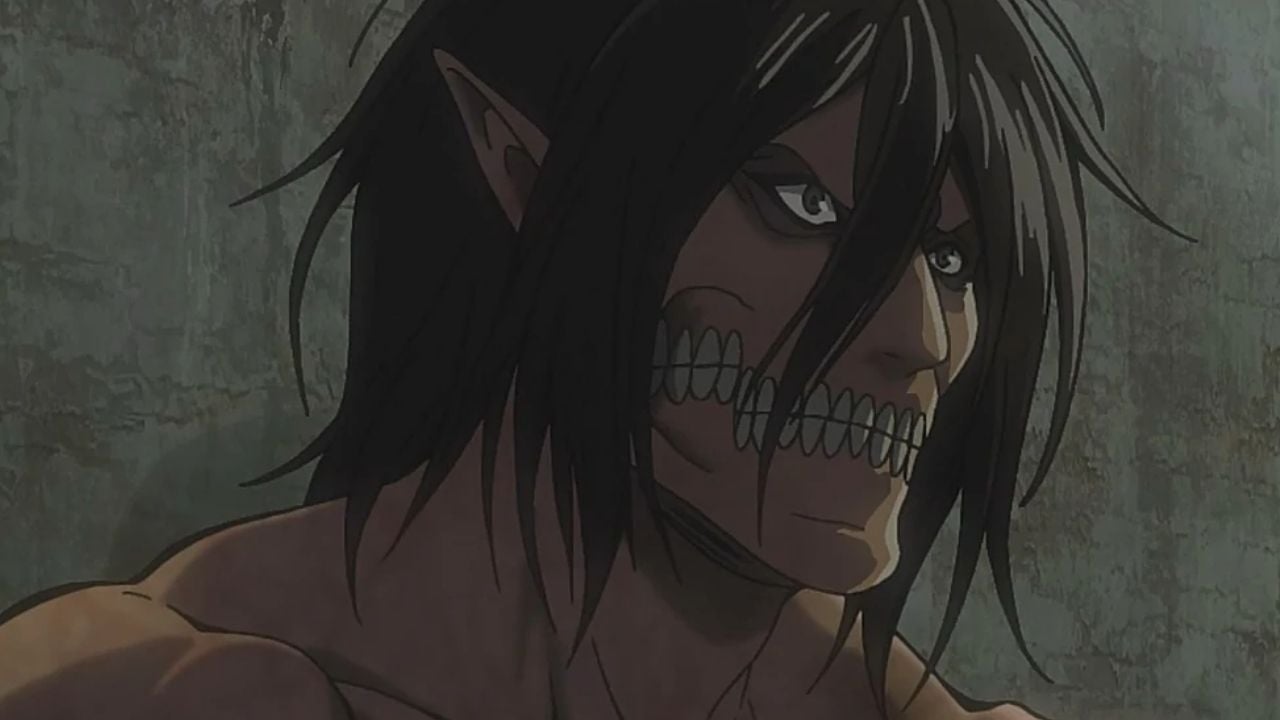
There is no moral ambiguity to it nor is Isayama pulling any punches regarding that, but as readers who see where he comes from, we understand his choices. That’s a mark of excellent storytelling.
Given the severity of the situation, fans believe that Eren’s death is inevitable from a narrative point of view.
Why? Eren’s death would spell the end of all this horror and provide a poetic conclusion to his character. Let’s get down to why fans believe this and how this speculation holds true in relation to the story.
1.1 Is Eren’s Destiny Foreshadowed?
A crucial theme to this story is the concept of free will. Does free will exist in a world whose fate is already decided? How free are your choices when the end itself is pre-determined? Attack on Titan can very well be renamed to ‘The Ballad of Eren Yeager’.
It is the tragedy of a character who strived for true freedom yet became a slave to his destiny. While I’m definitely not trying to romanticize his actions, there is a true sadness in learning his fate and the horrible destruction he causes.
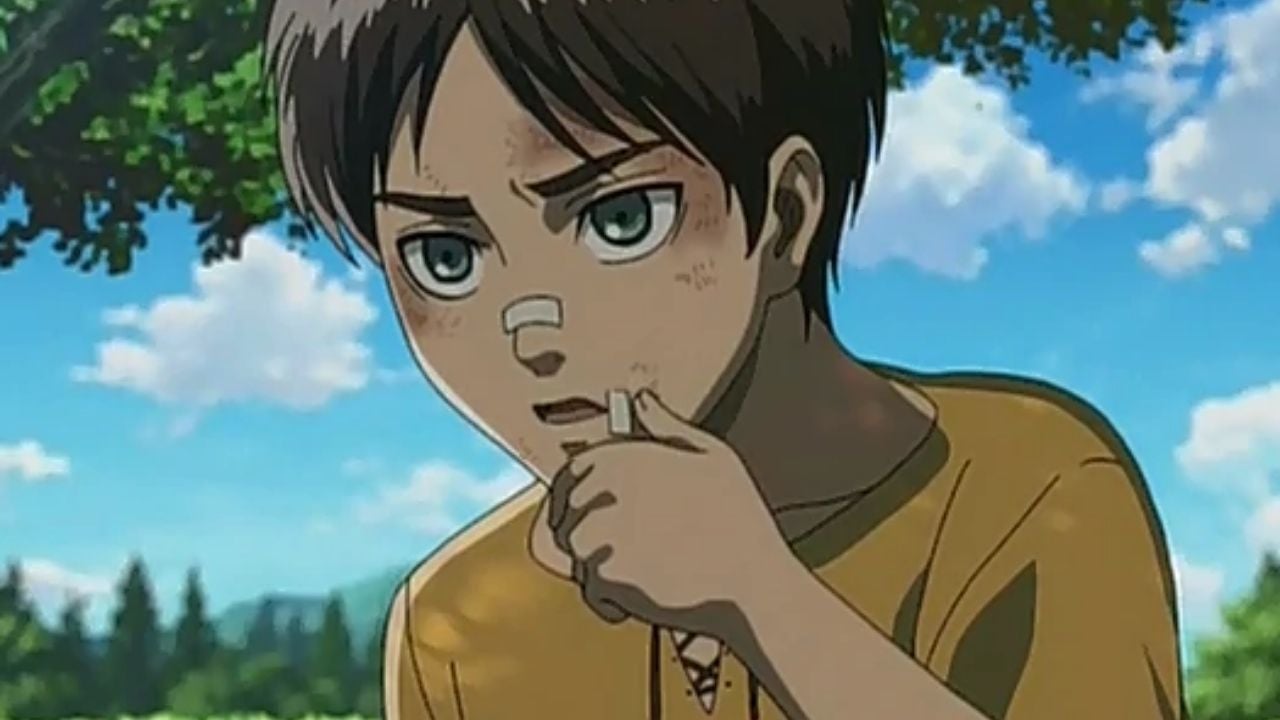
Moving on to why I think Eren’s death is foreshadowed in the series is one panel in the first chapter of the series. If you’re an ardent fan of the manga, then I’m sure you’ve already noticed this aberrant panel.
The panel depicts Mikasa (with shorter hair) saying, ‘Itterasshai’ that directly translates to ‘go and come back’. But it’s usually translated as ‘See you later’ hence, the line, ‘See you later, Eren’.
Mikasa’s eyes are shrouded in shadow so it’s unclear what her expression really is. Her lips seemed to be contorted into a smile though and she is wrapped in her beloved red scarf which is a prominent focus in the panel.
However, if you look really closely, you can see a tear tracing her left cheek. Why is this panel different, you ask? While it might not hit someone instantly, but for a pedantic fan like myself, it is evident that it’s a panel from the future.
The most obvious reason is that in the year 845, Mikasa had long hair. It wasn’t until Year 850 that she cuts her hair short upon Eren’s suggestion.
But then why is it that we haven’t seen this scene already? We’ve already seen in Chapter 101 that Mikasa has a boy-cut.
And as of Chapter 135, it’s still the same. With the manga ending in 3-4 chapters, it seems highly unlikely that her hair will grow so quickly. I will address this after I state the rest of the reasons.
The second reason is that we see a break (a pitch-black panel) after Mikasa’s panel and before Eren opens his eyes to young Mikasa.
That signifies a separation from the panel above and the panel below.
As we know, he further claims to have had a ‘long dream’. So, that panel was part of his ‘dream’. But then, Eren’s dreams aren’t just ‘dreams’ as he possesses the ability to see memories of the future and send memories to the past.
It’s exactly how he got Grisha to follow his plan and bring Kruger to tell Grisha that he must continue the mission if he wants to “save Mikasa and Armin”.
Young Eren is unaware of the significance of those memories and dismissed it as a dream. Yet, he’s crying because of it. This indicates that what he saw was incredibly sad and unbelievably realistic in his mind.
So, does that mean that Eren saw his fate without even realizing it? What comes to your mind when you think of Mikasa saying goodbye to Eren?
The term ‘Itterasshai (See You Later)’ is usually used by families in Japan and its connotations are quite heartwarming.
The idea is that they’re sending their beloved one off (usually to work) and they’re wishing for their safe return.
Just like Mikasa requests him to come back home in Chapter 101, It feels like the proper send off for Eren who’s finally leaving his home, i.e, Mikasa. This also corroborates the theory of Mikasa killing Eren but more on that later.
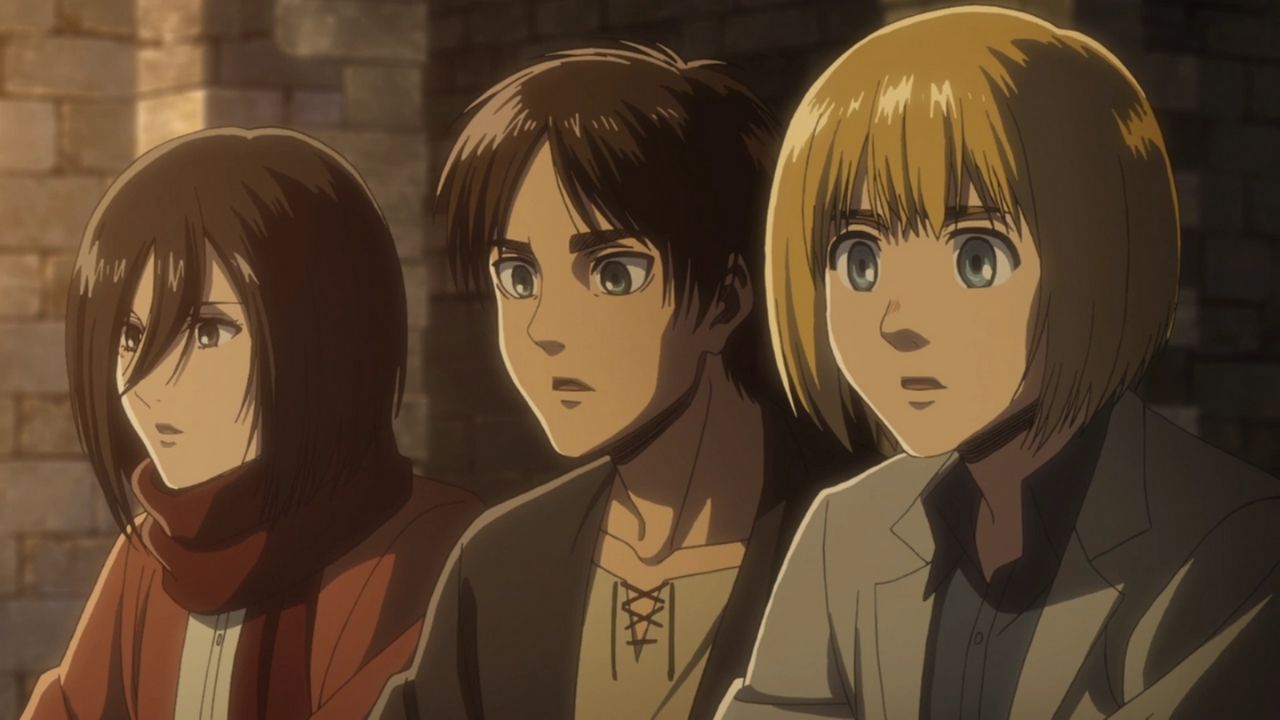
So, how is it possible for this scene to come after Chapter 135? Let’s take Chapter 131 as an example for this. In Chapter 131, we see that Eren’s perception of reality is becoming warped.
As he witnesses the crumble of civilisation, he takes on the form of young Eren. This can be termed as a form of regression. It’s easy to label Eren as evil and leave his feelings be. But it’s clear that Eren is suffering and has been for a long time.
This regression to his young self when he enjoyed love and security is a stark indicator that he’s unable to process the trauma he’s inflicting.
So, isn’t it natural for him to see a different version of Mikasa than the one who is killing him right now? The Mikasa he sees is teenage Mikasa – the source of love and security – when he had no other family.
Moreover, we’ve noticed an insane Easter Egg left by Isayama-sensei on that very page. The bottom of the page has a numerical ‘13’ on it.
This can easily be overlooked as page number until your realize this is the only page in the entire chapter, possibly the entire manga, that is numbered.
And of course, the number 13 bears huge amount of significance in the story. Its association with Ymir’s Curse really links it with death.
So, is that Isayama’s way of saying that Eren already witnessed his death? Attack on Titan is known for not adhering to a linear storytelling, so it won’t be surprising that the end is the beginning, and the beginning is the end. (Any Dark fans out there?)
Also, this isn’t the first time Eren has remained in a semi-conscious state. Remember when he went a bit wild during the mission to retake Trost District?
It’s Armin who brings him back from that state by reminding him of the outside world. Interestingly, from Eren’s perspective, it’s shown as young Armin egging young Eren to wake up.
1.2 Eren’s Intentions – Moving Forward
While Eren may be a slave to his own destiny, he still is consciously making the choice to destroy the world. For a while, it almost seemed like Eren was being controlled – even Mikasa and Armin held the same opinion.
This felt true until Mikasa’s monologue in Chapter 123 where she realizes that Eren was the same all along. Something that he even repeats to Zeke. “If someone would take away my freedom, I wouldn’t hesitate to take theirs” is what he tells his older brother.
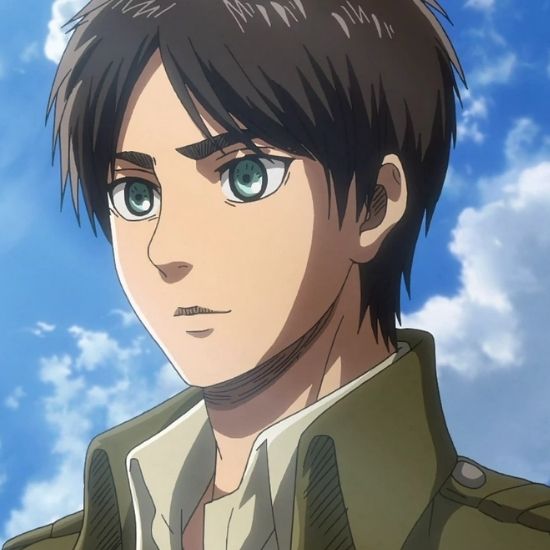
In Chapter 133, he recites his mantra. And by his mantra I mean, “I will keep moving forward”. He also states that he wouldn’t let fate decide Paradis’ Future.
In order to gain his and Paradis’ freedom, he is freely choosing to eliminate the world’s freedom. So, as he fights against his homeland’s fate, he makes his own destiny a reality.
Furthermore, he tells his friends in the very same chapter, that they have the freedom to protect the world’s freedom which would require “stopping [him] from ever taking another breath”.
So until the Alliance finds another way to save the world – saving humanity would require Eren’s death. Nothing else could bring a halt to his plans.
2. Mikasa’s Character Development
Mikasa’s character development is an important factor to take if we believe Eren is going to die. She serves as the answer to the ‘how’ of it all.
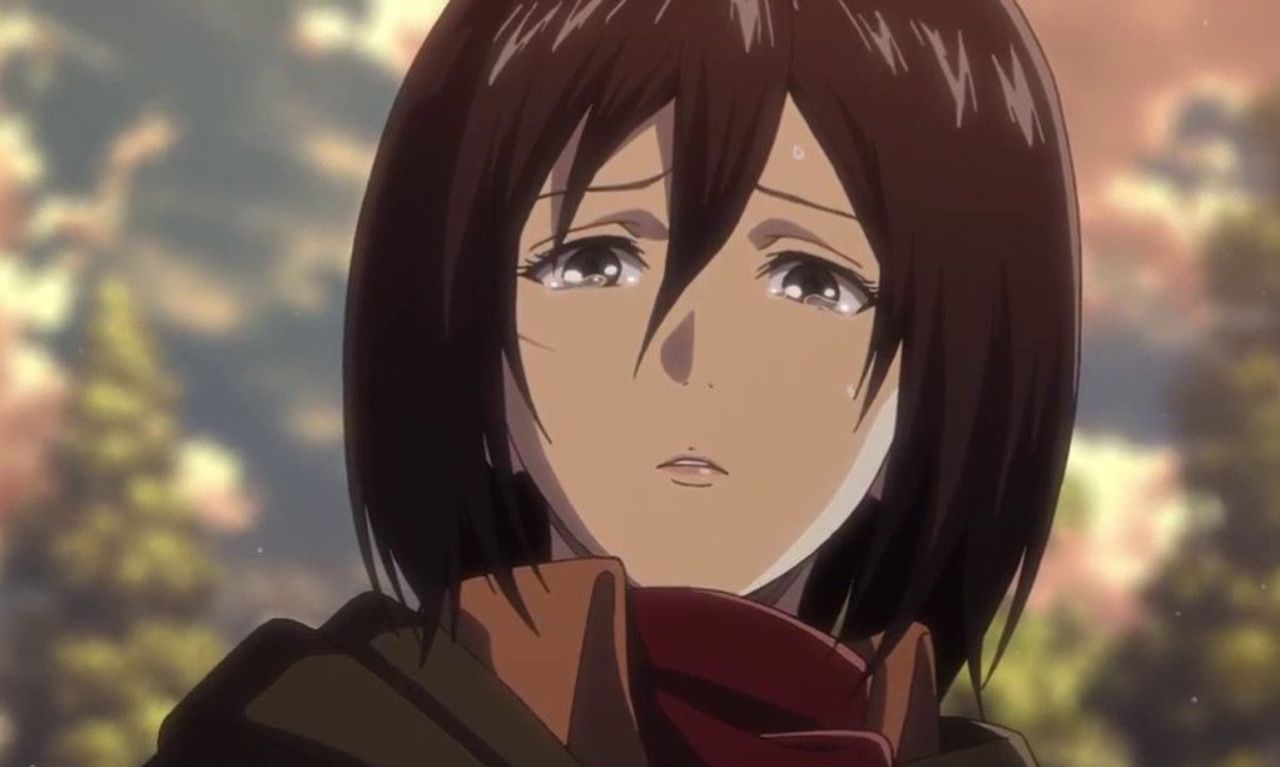
Eren’s powers are insanely formidable. As Jean mentions, he has the ability to control all Titans and Eldians which includes the Alliance, his main challenger.
Naturally, no ordinary John Doe could kill Eren. Out of the Alliance, given their strength and abilities, the three contenders are Mikasa, Levi and Reiner.
Levi can be eliminated since his fight seems to be with the Beast Titan. And I firmly believe that Mikasa would be the one to kill Eren, possibly with the help of Reiner and the Alliance.
Why Mikasa? Obviously, her skillset is godly and her Ackerman blood will leave no stone unturned when it comes to a battle. However, it isn’t just skills alone that determines her fate of killing Eren.
It is required of her when following the logic of the narrative. Mikasa’s character development is her separation from Eren. This is a well-known fact in the community supported by the creator himself.
Comparing Season 1 Mikasa and the current Mikasa really shows how far she’s come along. Season 1 Mikasa battled with intense separation anxiety and considering her past trauma, it’s quite understandable. Yet gradually we notice her anxiety dissipating.
Her “I can’t live without you” turns to “I will live so I can remember you” which is a beautiful and mature way to live. Mikasa killing Eren would finally cement her journey as fruitful.
You’re probably thinking “That’s so twisted!”. Well, I’m guessing the previous 135 chapters weren’t enough to make you realize that the story of Attack on Titan is gut-wrenchingly twisted.
Mikasa killing Eren would mean that she has put Eren’s peace and the world’s freedom above what she wants.
She will serve as his executioner like a kaishakunin would serve a samurai in seppuku. Kaishakunins were people who would behead the samurai after he commits seppuku in order to prevent prolonged anguish.
It is considered an honour to take on that role and history proves that the norm was for a close friend to do it. She also signifies home for Eren. Chapters 5 and 123 reinstate the fact they are, after all, family above anything else.
What better person to send him off than his family? What better person that he sees last than who he calls his home? So, Mikasa’s character development is interlaced with Eren’s freedom.
3. What Does The Final Panel Indicate?
Well well, the final panel is an omnipresent being – sprouting in every other Attack on Titan debate. And why wouldn’t it be? It provides us a key visual of how this masterpiece will conclude. Intense debates have ravaged the community forums in its wake – oddly, turning into ship wars.
The final panel reveals a man holding a baby and stating, “You are free” to the child. The community has narrowed it down two possibilities – it is Eren with Historia’s child or it is Grisha in the past with baby Eren.
I’m not going to get into the nitty-gritty details of this debate (because it’s exhausting in itself). But for the sake of the theory I’m currently addressing, let’s take the last panel as Eren and Grisha.
Because if Eren dies, by that logic, it can’t be Eren holding the baby. Now if it is Grisha and Eren, then thematically, it only makes sense to show this panel when adult Eren achieves his freedom.
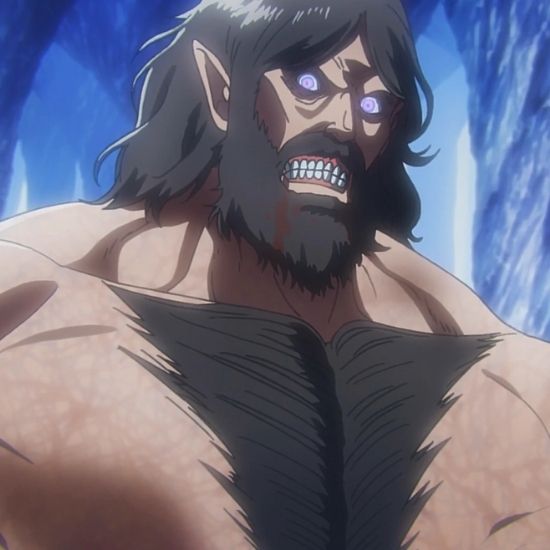
Attack on Titan’s tendency to shift away from a linear storytelling can assist such a decision. It starts with his death (although we’re unaware then) and ends with his death as well. I repeat, the end is the beginning, and the beginning is the end. So, the story comes full circle.
Why is Grisha telling Eren that he’s free? I’d say, in Eren and Carla’s words, because he was born into this world. And through paths, the link between the past and the future is strong.
It’s possible that Grisha felt something through Paths and said this. It would be a fitting conclusion for the story – Eren was born free and he died free.
And because, as an inheritor of the Attack Titan, the significance of freedom was not lost on Grisha. Especially when you consider what happened with Zeke.
It is a reasonable desire to want Eren to be free. Zeke was unfortunate to have been shackled by Grisha the Eldian Restorationsist’s myopic aspirations.
4. Norse Mythology Influences and Theme
Isayama uses several cultural references as a model to his story. Two notable cultures are the Germanic model and Norse Mythology.
The influence of German civilization and history is pretty obvious especially through the names (Yeager/Jaeger, Reiner, Armin, Fritz, Leonhart) and ahem, the armbands. But the influence of Norse Mythology is relatively elusive for anyone who isn’t a mythology buff.
Remember how the Co-ordinate looks like a huge tree similar to the one Ymir fell into? Well, Norse Mythology also has a legendary tree called Yggdrasil that serves as a connection to all nine realms.
It’s the tree of life where all planes of existence are connected. The concept of Co-ordinate is strikingly similar as it connects all Eldians transcending time and space. The prosperity of Yggdrasil is directly connected to the prosperity of cosmos.

Moreover, Ymir in Norse Mythology is the first being of the cosmos from whom the sibling Gods of Odin, Vii and Vé fashioned the Earth. Ymir was known as Aurgelmir and the father of all giants. Sound familiar?
And then there is also Castle Utgard which is directly extracted from Norse Mythology where it serves as stronghold of giants. These aren’t mere coincidences.
Eren and his final Attack Titan form also bear similarities with Norse Mythology stories and figures. Who is Eren’s counterpart in Norse Mythology? Well, since Attack on Titan isn’t a direct parallel to Norse Mythology – there isn’t one character who we can identify Eren as.
One of the chief figures that Eren resembles is Loki – a notorious God known for his tricks and wiliness. Their personalities, of course, don’t match.
However, their actions do. Loki in the initials texts of Norse mythology was depicted as a being a fun-loving trickster with good intentions. He would help where help was needed, and he served as a last resort for people who were at their wits end.
But slowly, as stories filled the mythos, he was gradually made to be a man that inflicted harm to the children of Gods. Soon, he became one with “evil intentions” much like the Devil/ Satan that Eren is heralded as.
He’s also similar to Odin in being a tempestuous person and a seeker of knowledge. Furthermore, Odin is the ‘All-Father’ king of Gods and the god of war and wisdom. Eren like him holds key to powers that make him the sole creator of the world.
When Rod Reiss talks about his brother Uri being the sole-creator of the world, the moment he compares the power to that of God – the panel shifts to Eren. Strange but important. The power and knowledge of the world he owns definitely transcends his mortality.
“There is no absolute truth in the world. That’s the reality of things. Anyone can become a demon or a God. All it takes is enough people who believe it to be true.”
Kruger
Eren was God to the rebel Yeagerists faction whereas he was The Devil for the rest of humanity. An interesting touch to perspective.
If you’re wondering why I’m mentioning all of this, bear with me because it is a build up to something. Notice Eren’s Attack Titan during the Rumbling, you can see his body is hanging upside down from the huge skeleton.
It is awfully similar to one of Odin’s stories where he hangs from the Yggdrasil’s branches, in a state between life and death, all the while learning the knowledge of powerful runes.
Eren learnt the truth about Ymir’s past and the Founding Titan powers in Paths where he was in a state between life and death, didn’t he?
Moreover, the position is symbolic of the Jungian teachings on the Hanged Man tarot. In certain interpretations, this Tarot is said to be a depiction of Odin hanging from Yggdrasil.
The Tarot card is associated with wisdom, sacrifice, divinity, prophecy and when reversed it signifies selfishness, body politic and the crowd. There is a halo over the man’s head signifying enlightenment.
Eren holds vast amount of wisdom and knowledge using which he is sacrificing himself so his friends can live. On the flip side, they are selfish as he has only his friends and Eldians in mind rather than the entire humanity.
As BiddyTarot puts it, the man in the tarot is calm as he is in this position by his own choice. However, the Hanged Man prescribes a person to let go of ‘old habits’ and behavioural patterns. It asks the person to pause and view the world in a new perspective.
While Eren is not interested in diplomacy, he has resorted to the solution that he had as a kid, “I will destroy them all”.
Coming back to Norse Mythology, the final similarity we can see is Ragnarok. The event of Ragnarok is the cataclysmic destruction of the cosmos and the rebirth of the world anew.
The event of Quake in Ragnarok is very similar to Rumbling. Eren wishes to usher in a new era where his friends live happily by burying civilisation.
Interestingly, his titan skeleton looks similar to Jörmungandr, a huge serpent that brings forth Ragnarok and eventually is killed by Thor (uh, Mikasa?). The implication of these Norse Mythology references is important.
It shows that the cruel world of Attack on Titan will be reborn after the fight and sacrifice of many great figures including Eren. All the figures that Eren is associated with die in Ragnarok. Again, it’s not a direct parallel but quite an interesting parallel to read.
Moreover, Attack on Titan majorly thrives on nihilistic undertones to the story. The main characters never get a complete win in the series. Everything comes with a price in this story.
There are several instances of this in the story: First, when they had to get rid of the bodies during the expedition to distract titans.
Second, retaking Shiganshina but at the cost of the majority of the Survey Corps. Third, Grisha – a doctor – obtaining the Founding Titan but having to murder children for it.
As I said, the story is about choices and their consequences. As Levi puts it, the choice one should make is the one that they’d regret less. This makes sense because either way we’d have to face up to our actions.
And this is exactly why I believe Attack on Titan wouldn’t have a happy ending. A price comes with its conclusion – either with the death of Eren Yeager or the crushing guilt he has to live with.
4.1 Will Eren Die in 13 years?
Well, spoiler alert on life, people die eventually. But it’s the question of when with Eren. Will he die during the fight? Or will he live ahead and die after 4 years?
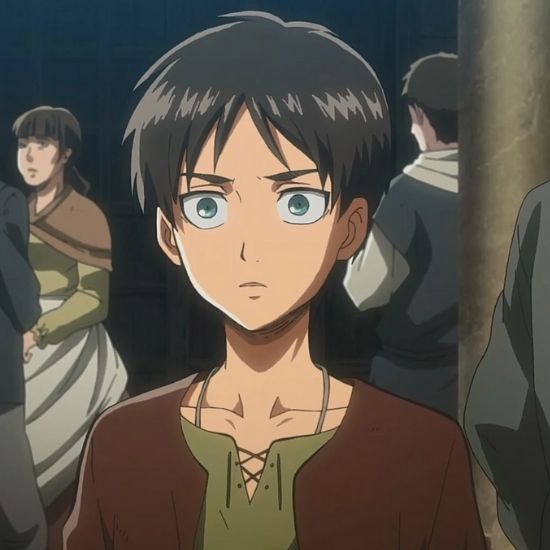
The reason behind this confusion is the mystery of Ymir’s Curse. Ymir died at the age of 13 after her master/husband butchered her and fed her to their daughters to keep the power of the Titans in his progeny as a way for Eldian rule.
And this is why it’s said that Titan Shifters die 13 years after they obtain the power of the Titans. The practice of passing on the Founding Titan in the royal family is derived from this belief. However, we have never seen an instance of someone actually dying from the curse. The mystery has stumped many.
4.2 Ymir’s Curse – A Red Herring?
Was Ymir’s Curse just a red herring to maintain control of the titans? Just like how King Fritz wished to keep control of the titans by asking his children to procreate. But then, we saw Uri Reiss age fast and Kruger’s health decline in his thirteenth year (although he wasn’t beyond help).
Grisha, on the other hand, seemed to be doing fine 2 years before his term ended. It’s natural to conclude that possessing multiple Titans might affect this but Ymir’s progenitor Titan consisted of all Nine Titans, yet she is the first to die.
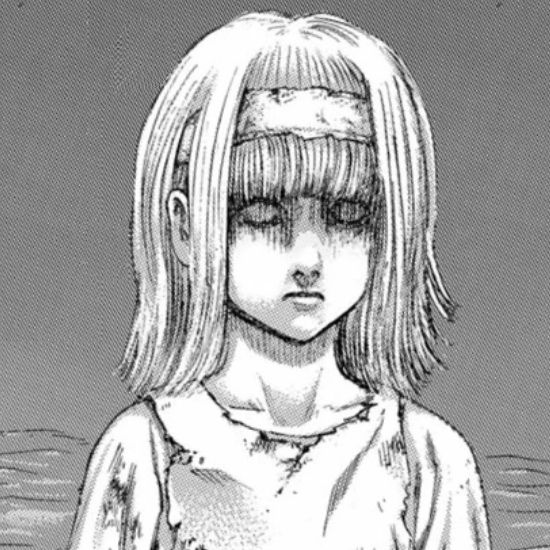
It is unclear whether she was butchered after her death or was killed to distribute her powers. However, it’s clear that Eren’s actions are a result of the timeframe he’s subjected to. In his conservations with Zeke, he seems to be aware of his fatality.
His tone and manner of speaking seemed to suggest that he wants his friends to live a full life and live on – without him. So, either it’s his destiny to die and prevent past mistakes from being repeated through the Rumbling or he truly will die in four years so he must complete his mission as the Attack Titan shifter beforehand.
Attack on Titan prides itself in creating a story that is gripping and unpredictable. Eren’s death and Attack on Titan’s ending are one among several factors that we can heavily debate on and theorize.
However, the answer will remain uncertain until Isayama himself unveils the big picture. Whatever the answer may be, one thing will ring true for time immemorial – Attack on Titan is an exemplary work of storytelling.
5. About Attack On Titan
Attack on Titan is a Japanese manga series written and illustrated by Hajime Isayama. Kodansha publishes it in the Bessatsu Shonen Magazine.
The manga began serialization on September 9th, 2009 and continues to date with 30 tankōbom formats.
Attack on Titan follows humanity settled within three concentric walls to protect themselves from the terrifying titans that prey on them.
Eren Yeager is a young boy that believes that a caged life is similar to that of cattle and aspires to go beyond the walls one day, just like his heroes, the Survey Corps. The emergence of a deadly Titan unleashes chaos.
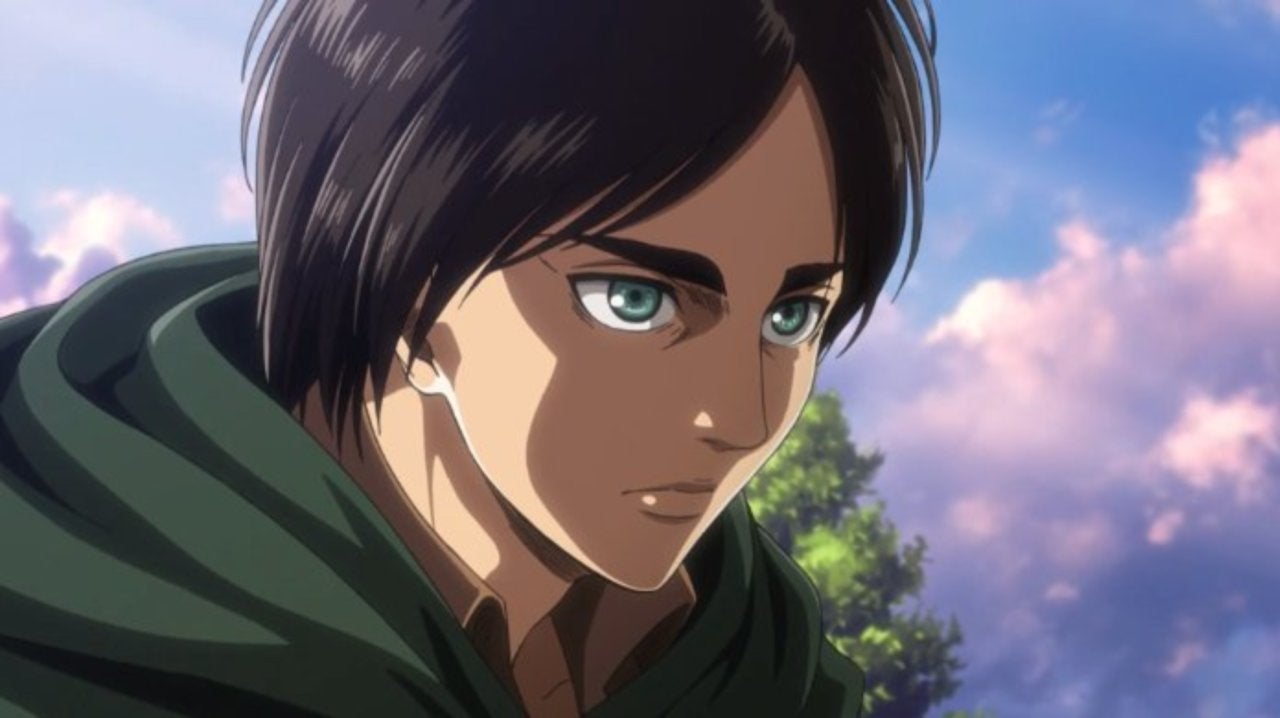
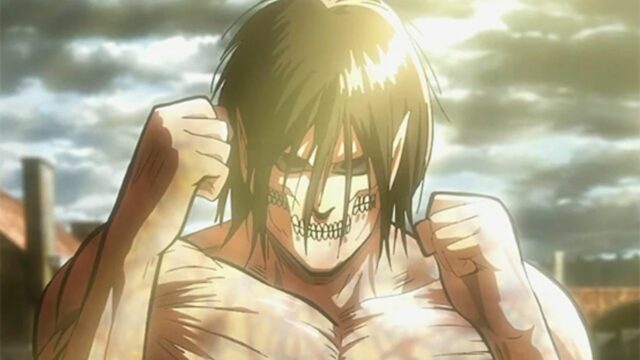

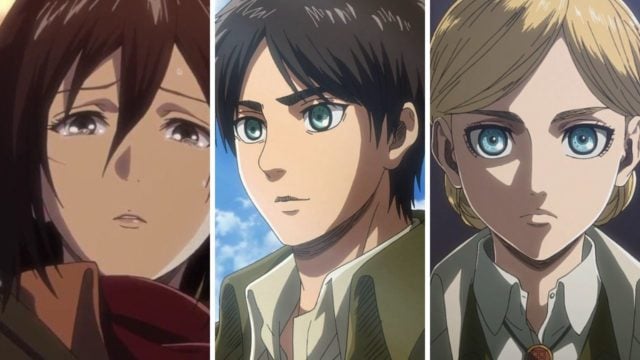
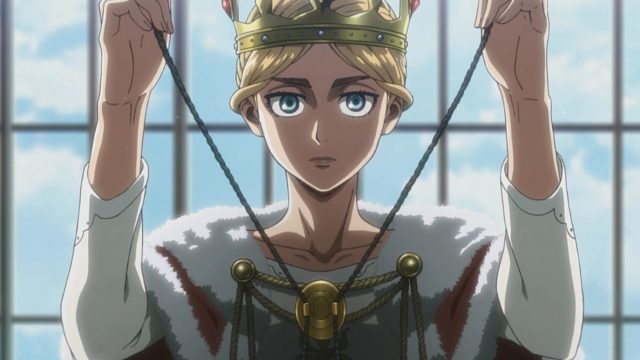

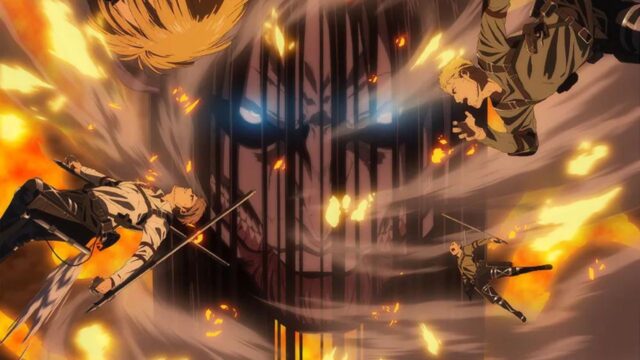
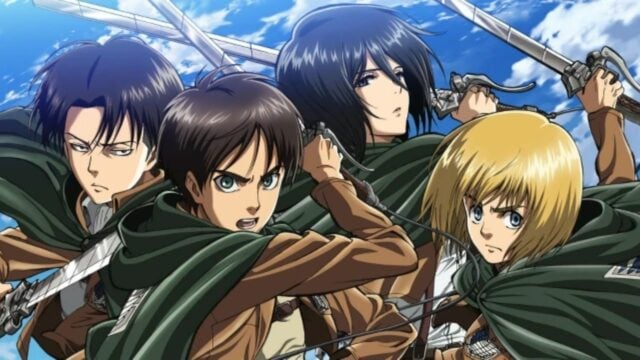
2 Comments on Does Eren Die in Attack on Titan? How Does Attack on Titan End?